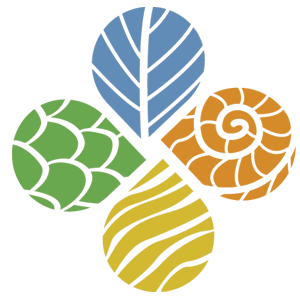UPDATE: (Adobe Connect) recording of this webinar. mp4 version coming soon.
Title: Darwin Core Hour: VertNet presents the Aggregator's Viewpoint
Part THREE: VertNet: (More Than Vert)Net
DATE TIME: Tuesday, August 29th, 2PM EDT, 3PM (Buenos Aires), 7 PM (London), 6 PM UTC (18:00)
Presenters (VertNet): John Wieczorek - Information Architect, Museum of Vertebrate Zoology, University of California, Berkeley
Moderators: Paula Zermoglio, Deborah Paul
Room: https://idigbio.adobeconnect.com/room
We encourage people to bring or submit questions and to have open discussions in each webinar.
 General abstract - Chapter 7.
General abstract - Chapter 7.
In this set of presentations in the Darwin Core Hour Series, we have shifted to the viewpoint of large biodiversity data aggregators such as: GBIF, iDigBio, VertNet, ALA, and Canadensys. The Darwin Core Standard plays a key role in the standardization of biodiversity data and in the design and implementation of strategies to improve data quality. Many people wonder what happens to their data after they provide it to an aggregator. Find out the answers to such questions as: what does the aggregator do to assess fitness of the data?, what are the most common data issues seen?, what does the aggregator do to data to make it easier to find when searching an aggregator database?, and how does sharing data with an aggregator benefit me as a collection manager/curator/researcher/data scientist?
Part THREE: (More Than Vert)Net
In this Darwin Core Hour we will follow up in the series on aggregator perspectives with a view from VertNet. Though the taxonomic scope of VertNet as a biodiversity data aggregator is focussed on Chordates, VertNet serves a broader biodiversity data mobilization role that has no taxonomic or geographic boundaries. As an Associate Participant in GBIF, VertNet is also involved in a wide variety of other community services, including the development of, promotion of, and training on biodiversity data standards and data quality. In this webinar we will explore the series of services that VertNet provides, such as migration and data quality processes, as well as its unique extracting and searching capabilities, which allow content such as trait data (e.g., body mass and length) to be sought and retrieved. We will discuss VertNet's role in the broader data mobilization framework and how that relates to other biodiversity data sharing initiatives.
LINKS: Pre-reading or after-webinar materials
- http://vertnet.org/
- http://portal.vertnet.org/search
- http://journals.plos.org/plosbiology/article?id=10.1371/journal.pbio.100...
- http://vertnet.org/resources/norms.html
- http://vertnet.org/resources/datalicensingguide.html
- https://github.com/VertNet/toolkit/wiki/Migrator-Workflow
- https://github.com/tucotuco/DwCVocabs
- http://vertnet.org/resources/traitsguide.html
- https://www.ncbi.nlm.nih.gov/pmc/articles/PMC5199146/
Link to how to get the most out of Adobe Connect https://www.idigbio.org/wiki/index.php/Web_Conferencing
Please use headsets for best experience.
From last week - Parts one and two.
Part ONE: GBIF: free and open access to global biodiversity data and
Part TWO: iDigBio - aggregating and enhancing vouchered global biocollections data were presented on Tuesday, August 15th, 10 AM EDT, 9AM CDT, 4 PM CEST
UPDATE! Recordings for Part One and Two: Adobe Connect version or the iDigBio Vimeo (mp4) version
Presenters (GBIF): Andrea Hahn - GBIF Head of Data Products, Kyle Braak - IPT Product Manager for GBIF
Presenter (iDigBio): Joanna McCaffrey - iDigBio Biodiversity Informatics Manager, Deborah Paul - iDigBio Digitization and Workforce Training
Moderators: Gary Motz, Erica Krimmel
Part ONE.
GBIF: free and open access to global biodiversity data
Abstract: GBIF—the Global Biodiversity Information Facility—is an open-data research infrastructure funded by the world’s governments and aimed at providing anyone, anywhere access to data about all types of life on Earth. Coordinated through its Secretariat in Copenhagen, the GBIF network of member states and organizations—formally known as Participants—provides data-holding institutions around the world with common standards and open-source tools that enable them to share information about where and when species have been recorded. This knowledge derives from many sources, including everything from museum specimens collected in the 18th and 19th century to geotagged smartphone photos shared by amateur naturalists in recent days and weeks.
The GBIF network draws all these sources together through the use of the Darwin Core standard, which forms the basis of GBIF.org’s index of hundreds of millions of species occurrence records. In the process, a number of checks and validation steps ensure data consistency and completeness of core elements. Publishers provide open access to their datasets using machine-readable Creative Commons licence designations, allowing scientists, researchers and others to apply the data in hundreds of peer-reviewed publications and policy papers each year. Many of these analyses—which cover topics from the impacts of climate change and the spread of invasive and alien pests to priorities for conservation and protected areas, food security and human health— would not be possible without this.
LINKS: Pre-reading or after-webinar materials
Part TWO.
iDigBio: aggregating and enhancing vouchered global biocollections data
DigBio's scope is focussed on vouchered specimen data. In addition, we accept all attendant information related to the specimen including media, associations, relevant genetic information, and trait data. iDigBio preserves the original data as sent to us by the data provider, and enhances the data via an index according to a set of data quality metrics for improved searchability for researchers and the data providers alike. Through iDigBio, any biocollection on the planet can extend the reach of their collections. We facilitate research use of biocollections data and strive to make it easy for researchers to show what's possible with the data.
LINKS: Pre-reading or after-webinar materials
Darwin Core Hour Series Abstract:
Darwin Core has become a broadly-used standard for biodiversity data sharing since its inception as a standard by the organization Biodiversity Information Standards (TDWG) in 2009. Despite, or because of, its popularity, people trying to use the standard continue to have questions about how to use Darwin Core and associated extensions. This webinar series looks at open questions related to Darwin Core. Though the topic is broad, individual chapters in the series will focus on specific topics to any adequate level of depth. We encourage people to bring or submit questions and to have open discussions in each webinar.
Link to how to get the most out of Adobe Connect https://www.idigbio.org/wiki/index.php/Web_Conferencing
Please use headsets for best experience.




